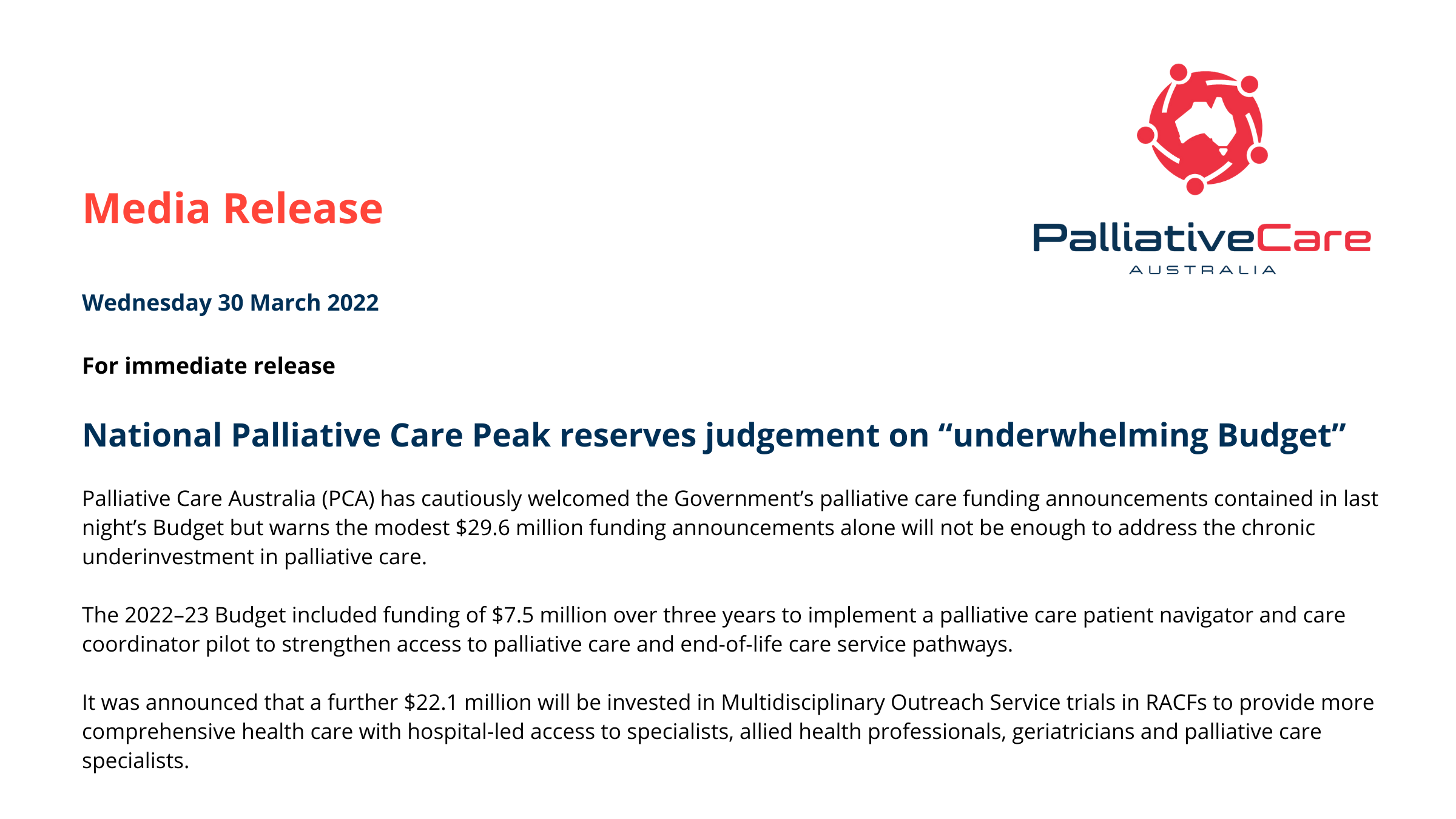National Palliative Care Peak reserves judgement on “underwhelming Budget”
National Palliative Care Peak reserves judgement on “underwhelming Budget”
Wednesday, March 30, 2022
Palliative Care Australia (PCA) has cautiously welcomed the Government’s palliative care funding announcements contained in last night’s Budget but warns the modest $29.6 million funding announcements alone will not be enough to address the chronic underinvestment in palliative care.
The 2022–23 Budget included funding of $7.5 million over three years to implement a palliative care patient navigator and care coordinator pilot to strengthen access to palliative care and end-of-life care service pathways.
It was announced that a further $22.1 million will be invested in Multidisciplinary Outreach Service trials in RACFs to provide more comprehensive health care with hospital-led access to specialists, allied health professionals, geriatricians and palliative care specialists.
PCA CEO Camilla Rowland says those initiatives are worthy, and indeed aligned with the recommendations contained in the recently released Palliative Care Australia Roadmap 2022-2027, but believes governments must invest more if we are to secure high-quality palliative care for all Australians who need it.
“Access to quality palliative care is everyone’s right, and people living with a life-limiting illness deserve high-quality care. The budget papers correctly reference that between 50% and 90% of the 160,000 people who die in Australia each year would benefit from access to palliative care, but the Budget fails to deliver the investment required to ensure that this access happens.
“To guarantee access to quality palliative care, the Government needed to invest an additional $427.5 million for palliative care each year starting with the 2022-23 Budget. Disappointingly, this Budget is almost $400 million short of that target,” Ms Rowland said.
PCA Chair, Professor Meera Agar says that the demand for palliative care is currently unmet, and with the population growing and ageing, it will only worsen without adequate investment.
“The demand for palliative care services in Australia is expected to increase by 50 per cent between now and 2035, and double by 2050. It is not enough for the Government to simply acknowledge the numbers of Australians requiring palliative care. The Government needed to plan and invest significantly more to ensure high-quality palliative care for all who need it, where and when they need it,” Professor Agar said.
PCA remains cautiously optimistic that as the Government rolls out reforms in aged care including the implementation of the Australian National Aged Care Classification (AN-ACC) funding instrument and increased investment in training for aged care workers that the palliative care needs of aged care residents will be a priority.
PCA is also hopeful that all sides of politics will prioritise palliative care for the upcoming Federal election, and the Palliative Care Australia Roadmap 2022-2027 will be used to form priorities and commitment for the next five years.
PCA Media Release - 2022-2023 Federal Budget Response
Media contact: Jeremy Henderson – jeremy.henderson@palliativecare.org.au
